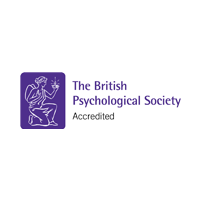Please note: For 2026/27 we will run MSc Clinical Associate in Psychology (Adults) and/or MSc Clinical Associate in Psychology (Children and Young People). This depends on a sufficient number of apprentices being enrolled for each strand.
This MSc course, which has been accredited by the British Psychological Society (BPS), will be the foundation for your training to become a qualified Clinical Associate in Psychology (CAP).
Alongside your formal study of clinical psychology theory and practice, you will undertake practice-based learning and supervised clinical practice in a relevant health or social care setting under the supervision of a registered clinical or counselling Psychologist.
You’ll develop the knowledge, skills and behaviours necessary to work safely and effectively as a CAP, including knowledge of governance, ethical and organisational issues.
We will train you to work effectively with individuals experiencing mental health problems using evidence-based approaches. You'll develop skills in psychological assessment, formulation and intervention, and in how to evaluate and enhance your practice. Your developing clinical practice skills and competence will be reviewed and assessed throughout the course.
As you work to become a reflective, ethical and competent practitioner, you'll gain the experience needed to contribute to the effective provision of psychologically informed care across the wider health and social care system.
On completion of your degree apprenticeship, you will have demonstrated the knowledge, skills and behaviours to work as a qualified CAP, and be able to:
- work autonomously with appropriate support and supervision from a registered psychologist
- provide personalised and evidence-based care to people from different backgrounds and cultures
- support service development through quality improvement
This course is designed for psychology graduates employed by health and social care providers as apprentice Clinical Associates in Psychology. The CAP role aims to address unmet needs in mental health provision, as outlined in the NHS Long Term Plan and Community Mental Health Framework.
Graduate prospects
On successful completion of this apprenticeship degree, you’ll be eligible to join the British Psychological Society (BPS) Wider Psychological Workforce register as a Clinical Associate in Psychology, and apply for Clinical Associate in Psychology roles in the NHS and other health and care organisations.


